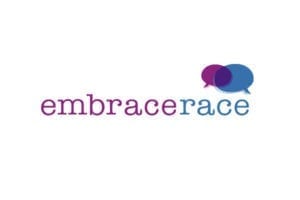
The impact of the COVID19 crisis disproportionately affects communities of color. This sources focuses on helpful resources that center the needs of Black, Indigenous and People of Color and other racialized communities. EmbraceRace, the creator of this source, continues to add and update this list. Various languages are included in the sources provided.
From May 26, 2020
COVID Resources that Take Race Seriously
COVID-19 hurts us all. But the impacts of the crisis are hurting communities of color, including children, more. Below find helpful resources that center the needs of Black, Indigenous and People of Color and other racialized communities most impacted by the COVID-19 crisis. We will continue to add to this list. (Also see this curated list of articles about the disproportionate racial impacts of COVID.)
Asian Americans
- Covid-19 Resources to stop bullying and hate (Act to Change). Amid a steep rise in incidents of bullying and racism against the Asian American and Pacific Islander community, resources on what’s happening and how to report and combat these cases of bullying.
- Treating Yellow Peril: Resources to Address Coronavirus Racism (Jason Oliver Chang). “As we continue to track the development of the coronavirus, racial fears and anxieties have become a dominant frame in which people evaluate the concerns over the ongoing COVID-19 coronavirus infection. This page is intended to gather textual and digital resources to provide easy access to material useful for teach-ins, talking points, and classroom teaching.”
Immigrants
- Resources for Immigrants During the Coronavirus Pandemic (America’s Voice). “From health care needs to unemployment benefits and more, we understand that many members of our communities are facing a time of great need and confusion. Here’s a list of resources we’ve pulled together that may help.”
- COVID-19 Recursos para Comunidades Indocumentadas (Betancourt Macias Family Scholarship Foundation). “If you are undocumented yourself or have family members who are undocumented and have been impacted by the COVID-19 pandemic.”
Tribal Nations
- Indian Country Resources: Coronavirus (COVID-19) (National Congress of American Indians). “The National Congress of American Indians established this webpage to provide factual information from trusted sources about the coronavirus (COVID-19) pandemic in the United States. Check back for updates as the situation changes.”
- COVID-19 Resources for Indian Country. “Across Indian Country, we are witnessing tribal leaders and national Native organizations taking action to protect and position Native nations to see a better tomorrow. These examples and many more make up the contents of this COVID-19 Resources for Indian Country toolbox.”
Students and Families
General
- COVID-19 health equity resources (American Medical Association). “Throughout the COVID-19 pandemic, the AMA is carefully compiling critical health equity resources from across the web to shine a light on the structural issues that contribute to and could exacerbate already existing inequities.”
- COVID-19 and Health Equity Resources (Health Equity Initiative). “In response to the current Coronavirus Disease 2019 (Covid-19) pandemic, Health Equity Initiative has compiled a list of resources that points to the importance of making sure that health equity stays on the table during outbreak response, and that our collective work aims to protect vulnerable and marginalized communities from COVID-19.”
- COVID-related Resources (The African American Policy Forum). “Many of these lists have been collective works by community members and organizers. In these compiled lists, you will find links and resources that cover a large array of information. From covering general support and information, mutual aid support networks, emergency funds, and mental health details.”
- COVID-19 – Racial Equity & Social Justice Resources (Racial Equity Tools). A large list of COVID-related items organized by the following categories: Analysis, Resources and Tools, Healing and Community Care, Organizing and Solidarity, Resource Building & Rapid Response, Virtual Work and Online Engagement, and List of Lists.
- Collective Care Is Our Best Weapon against COVID-19 (Cindy Milstein). 40+ pages of “do it ourselves” and “mutual aid” COVID-related links, mostly organized by state.
- The COVID Tracking Project. “The COVID Tracking Project is a volunteer organization launched from The Atlantic and dedicated to collecting and publishing the [racial and ethnic] data required to understand the COVID-19 outbreak in the United States. Since early March, 2020, we have grown from a tiny team with a spreadsheet to a project with hundreds of volunteer data-gatherers, developers, scientists, reporters, designers, editors, and other dedicated contributors.”
